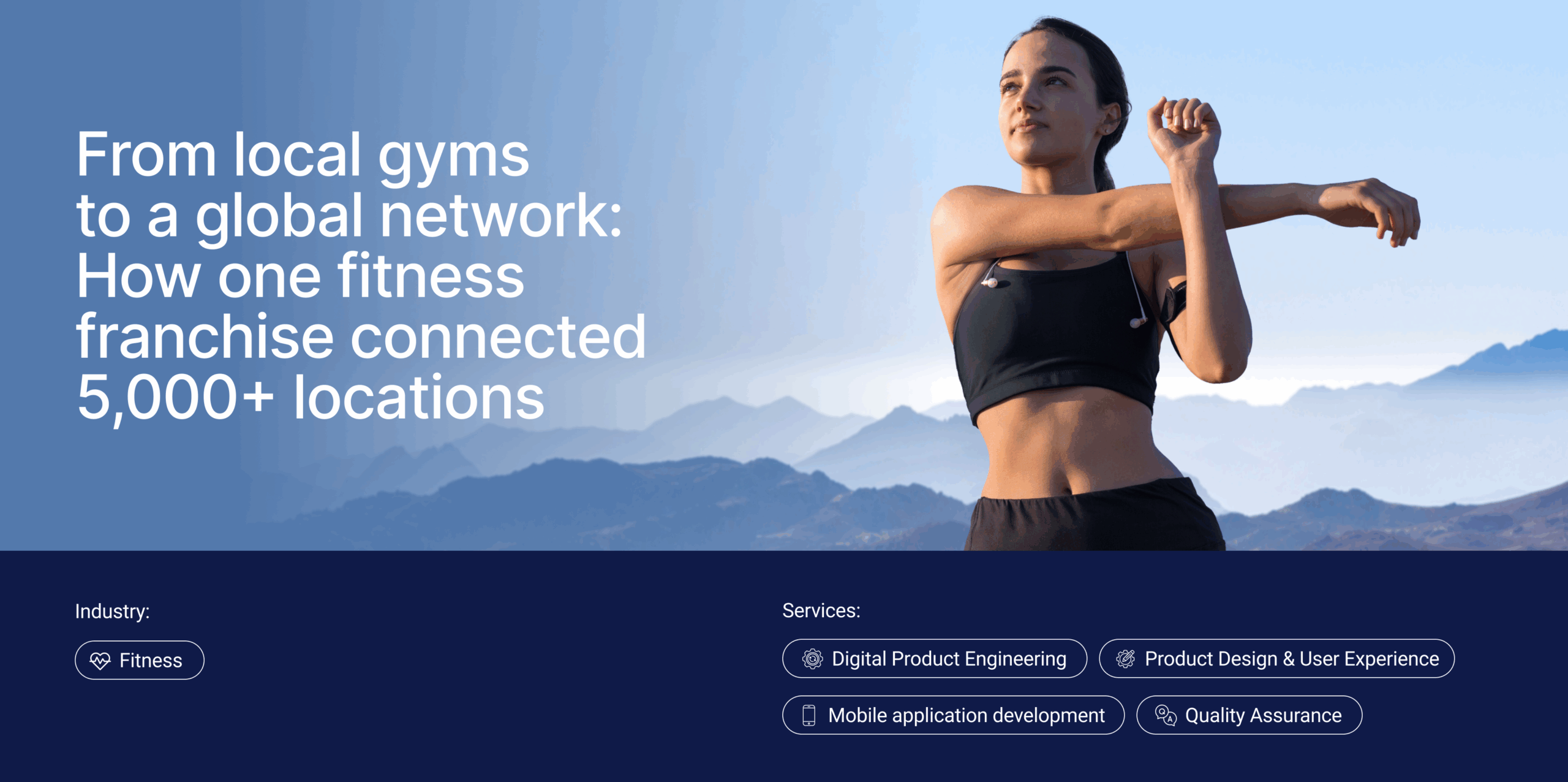
Introduction
While the Tech industry continues to face a crisis, we are still observing widespread layoffs and fierce competition for .NET job openings. In such a challenging environment, staying ahead requires more than just experience — it demands continuous skill development. Now, more than ever, it’s crucial to be well-prepared for interviews and screen calls with hiring managers.
Our expert, Technology Lead Oleg Karasik, has put together a comprehensive guide on the essential skills .NET developers should focus on to remain in high demand and secure their place in the industry.
Throughout its history, .NET developers have always been more than just “Backend”. In Desktop applications, they did everything from the UI to business to data storage. In Web, it was always about doing the full cycle — starting from the page markup and controls, server API, and ending right in the database.
Today, the perception of .NET developers as Full-stack developers has not only persisted but has significantly strengthened.
Therefore, a strong .NET developer is now expected to have knowledge of modern .NET and C#, Frontend, Cloud, DevOps, and, of course, databases. Does that sound overwhelming? Let’s break down what this really means.
Knowledge of Modern .NET and C#
Over the past few years, .NET has made a huge leap forward. A new version is released every year, bringing not only improved performance but also new capabilities. However, the main achievement, in my opinion, is the almost painless migration process from one LTS version to another, allowing projects to be kept on the latest versions of the platform with minimal effort.
For us as developers, this means that we must keep up with significant innovations — new JSON serialization, built-in Source Generators, new C# language features, and so on. This also includes related technologies like Entity Framework Core, which remains the standard for working with databases in .NET applications, continues to get faster and offers more features with each version.
That said, it’s not necessary to study every new feature in detail, but it’s worth reading about them to stay informed.
Of course, this doesn’t mean we can neglect the fundamental features of the platform, such as asynchronous programming with async-await, multithreading, effective use of collections (including new collections), and memory management.
And, of course, we must not forget fundamental concepts like design patterns and basic principles of application architecture (at least variations of Clean/Onion architecture). These skills still remain a solid foundation that should never be ignored.
Knowledge of Frontend
Today, knowing one of the popular Frontend frameworks is almost a mandatory skill.
It’s hard to say which is more in demand — Angular or React. According to our data, Angular is still more commonly used (especially in conjunction with .NET development) than React, although the difference is not significant.
The key question here is how “well” you should know Frontend. While the requirements of each project are unique, it’s reasonable to say that your knowledge should not be entirely basic or purely theoretical. It’s worth gaining practical experience (perhaps by developing a simple application for yourself as a practice exercise).
You should also be prepared for the possibility that a project might not have dedicated Frontend developers.
Knowledge of Cloud
Nowadays, it’s increasingly rare to encounter projects that don’t use cloud technologies at all. Therefore, knowledge of cloud technologies has become an essential part of being a Full-stack developer.
When it comes to .NET, Azure is undoubtedly the most popular choice. However, it’s worth noting that AWS has recently become more “.NET-friendly,” and its share may increase significantly in the near future.
You don’t need to be a certified mega-architect to work with the cloud, but it’s crucial to have a basic understanding of what cloud technologies are and to have experience with the most popular cloud services. In the case of Azure, this includes Web Apps, Azure Functions, Azure Storage Account, and so on.
It would be remiss not to mention working with Docker when discussing cloud technologies. Containerization is a popular way to deploy not only applications but also various dependencies (not to mention its use directly in the development process).
Therefore, it’s essential to understand the basic principles of what containers are, how to package an application into a container, deploy it, and understand what’s happening inside it. The plain text of a Dockerfile should not cause panic, and phrases like “just spin up Redis in a container” shouldn’t sound like a foreign language.
Knowledge of DevOps
“It’s something you don’t want to do but have to” — this is probably the best description of why basic DevOps knowledge is a plus.
More and more projects are moving toward continuous releases, greatly facilitated by cloud technologies. This brings a whole new set of challenges, requiring developers to pay more attention to how their applications are built, what data they need, how they will communicate with other apps, and whether they can be deployed in different environments.
Basic knowledge of how build and deployment processes work can be an excellent asset in this area.
Therefore, it’s worth dedicating some time to gaining practical experience in setting up CI/CD using one of the popular tools, such as Azure DevOps, GitHub Actions, or Bitbucket Pipelines. It’s important to remember that while the details of these systems may vary the concepts, they are built on are very similar. Learning any one of them equips you with knowledge and understanding applicable to the rest of them.
Knowledge of Databases
The ability to work with relational databases (especially MS SQL) has always been and remains an essential skill for .NET developers. However, today, there is an increasing demand not only for strong knowledge of relational databases but also for understanding and practical experience with non-relational databases such as Azure Table Storage, Azure CosmosDb, and MongoDb.
Of course, this list is neither complete nor exhaustive. However, it’s worth paying attention to these technologies and, if possible, gaining theoretical knowledge and practical experience with at least some of them.
Conclusion
Of course, the list of technologies, areas of knowledge, and advice provided here is not exhaustive and in no way guarantees that this will be enough to work on any project.
In addition to the mentioned items, there are many common technologies, such as Kubernetes, whose knowledge can be an advantage. However, it is important to remember that it’s impossible to learn absolutely everything. You can read about these technologies, gain a basic understanding of their capabilities, and learn which problems they solve. Then, when the need arises to study them in detail, you will know where to start and what direction to take.





